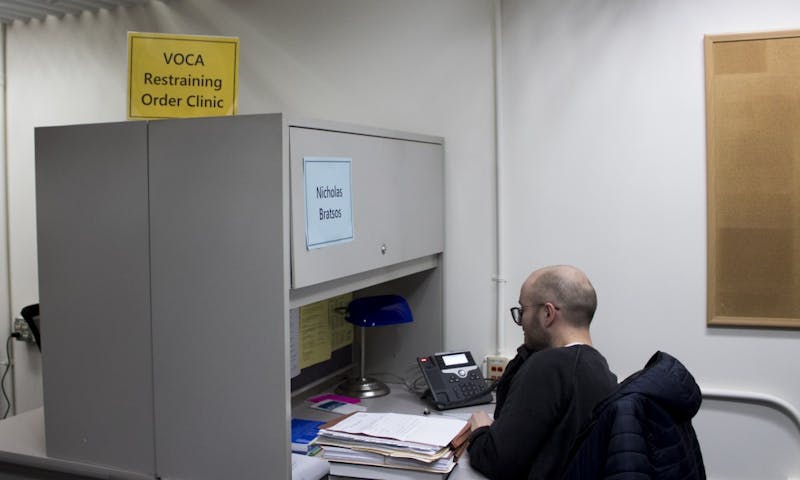

Domestic violence affects women around the world everyday, and Madison is no exception.
One in four undergraduate female students reported experiencing sexual assault and 50 percent of these students were dating or intimate with their attacker, according to the 2015 AAU Sexual Assault Climate Survey. The World Health Organization also found that nearly 30 percent of women experience intimate partner violence in the Region of the Americas.
The University of Wisconsin Law School aims to provide legal aid to women who experience domestic violence with the opening of the Victims of Crime Act Restraining Order Clinic this past January.
Restraining orders are typically the first line of defense for domestic violence survivors seeking protection from an abusive relationship, but not all women can access or afford services to get them. The new clinic hopes to address the gap in legal aid, employing UW-Madison law students to help.
Plans are underway to provide restraining order services in Dane County, as well as Jefferson, Rock and Sauk counties, according to Marsha Mansfield, a family law professor and the director of UW Law’s Economic Justice Institute. She says that UW-Madison is “partnering with domestic abuse agencies in each of these counties,” and that these agencies will refer most of their clients to VOCA.
The clinic and the services it provides is funded by a grant from the Department of Justice, Ryan Poe-Gavlinski, the clinic’s new director, explained. The Victims of Crime Act of 1984 is the federal government's means of providing support for programs that serve victims of all types of crime. Each year, federal criminal fines, forfeitures and special assessments are deposited into the government Crime Victims Fund.
The clinic’s primary goal is to provide direct services to people who need restraining orders — to whomever is a victim or survivor.
“Our students here at the law school are able to represent the victims and survivors in court at proceedings when they are attempting to get restraining orders,” Gavlinski added.
She views the opening of the clinic as an opportunity for law students to learn about trauma-informed advocacy and the dynamics of intimate violence.
There are no class prerequisites for law students to serve in the program, however, they need to be able to be certified as a law student who can practice in court. The students will work directly with clients and become the main point of contact for victims.
“We will help them do what they’re supposed to do for their clients, but we also want them to be able to rationalize why they think they should do something,” Gavlinski said in reference to the participating law students. “This will give them real life experience of what practicing in court will be like under an educational setting.”
Despite the prevalence of domestic abuse, there are a lot of reasons as to why victims or survivors may not report their experiences, with access to services being one of them. The addition of another resource is a huge benefit to the community of Madison, Gavlinski said.
As the number of victims of domestic violence increases, the VOCA clinic embodies how universities across the country are evolving their plans of action to counteract abuse within their community.
People of any gender are able to access the VOCA Clinic services by being witness advocates in a prosecutor’s office, as well as referral through counseling, safety planning and support groups.
Anyone can be directly referred to the clinic after reaching out to a local agency or agency in a nearby county. Gavlinski emphasized that the direct phone number to the clinic does not require any referral and that individuals can leave a message and will receive a callback.
The clinic, which is located at the Equal Justice Institute within the Law School, plans on reaching out to campus organizations to make their services more known and accessible to all.
Carrie Sperling, the Law School’s associate dean for experiential learning and education innovation, said she is eager to partner with other state agencies as a means of providing a resource accessible to survivors specifically to campus.
“This partnership is a great example of the university collaborating with the legislature and other state agencies for the benefit of Wisconsinites,” Sperling said. “Survivors of trauma will receive legal services they might not have been able to access or afford and our law students get a transformative educational experience that prepares them to better serve the needs of crime victims.”